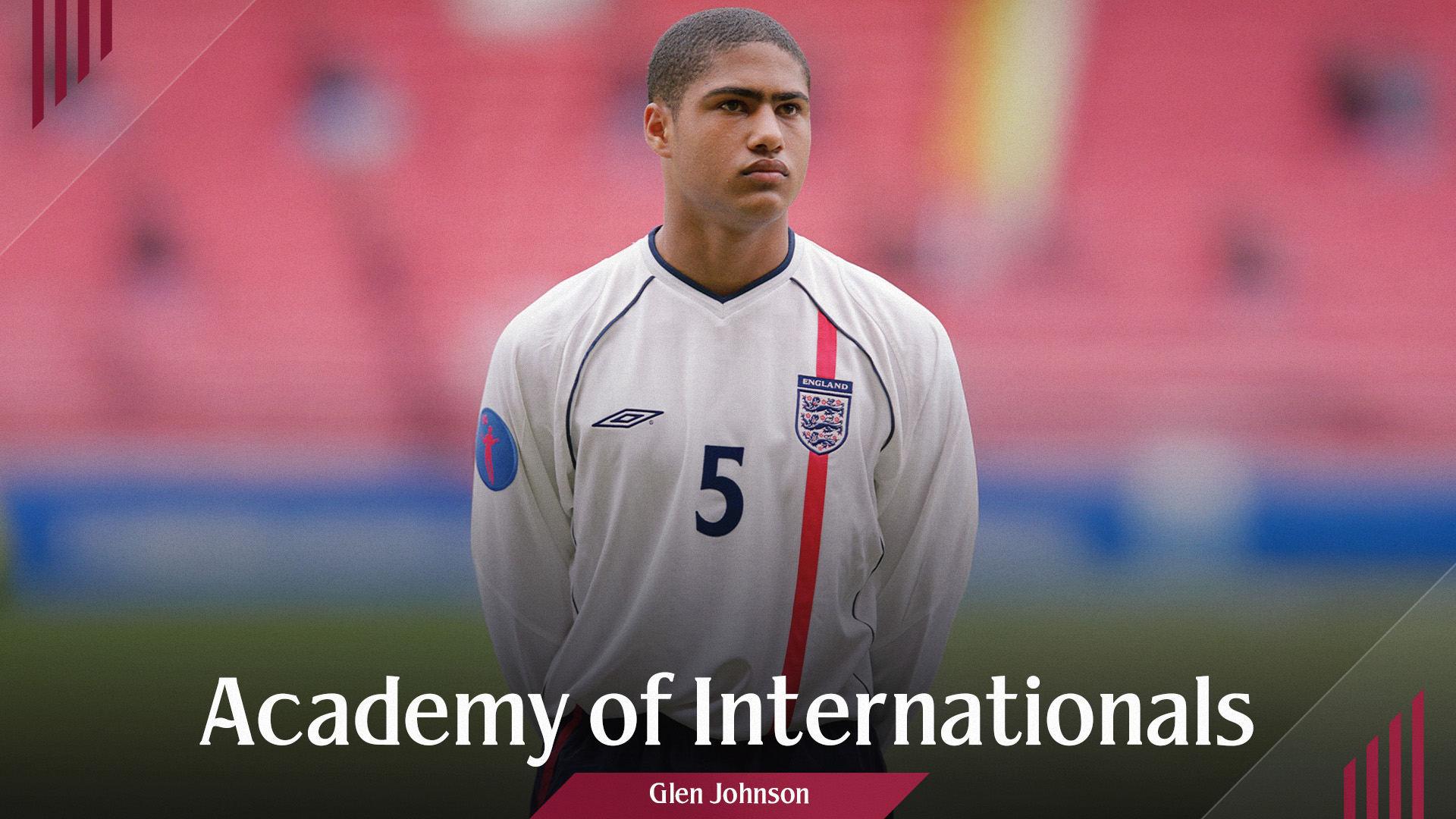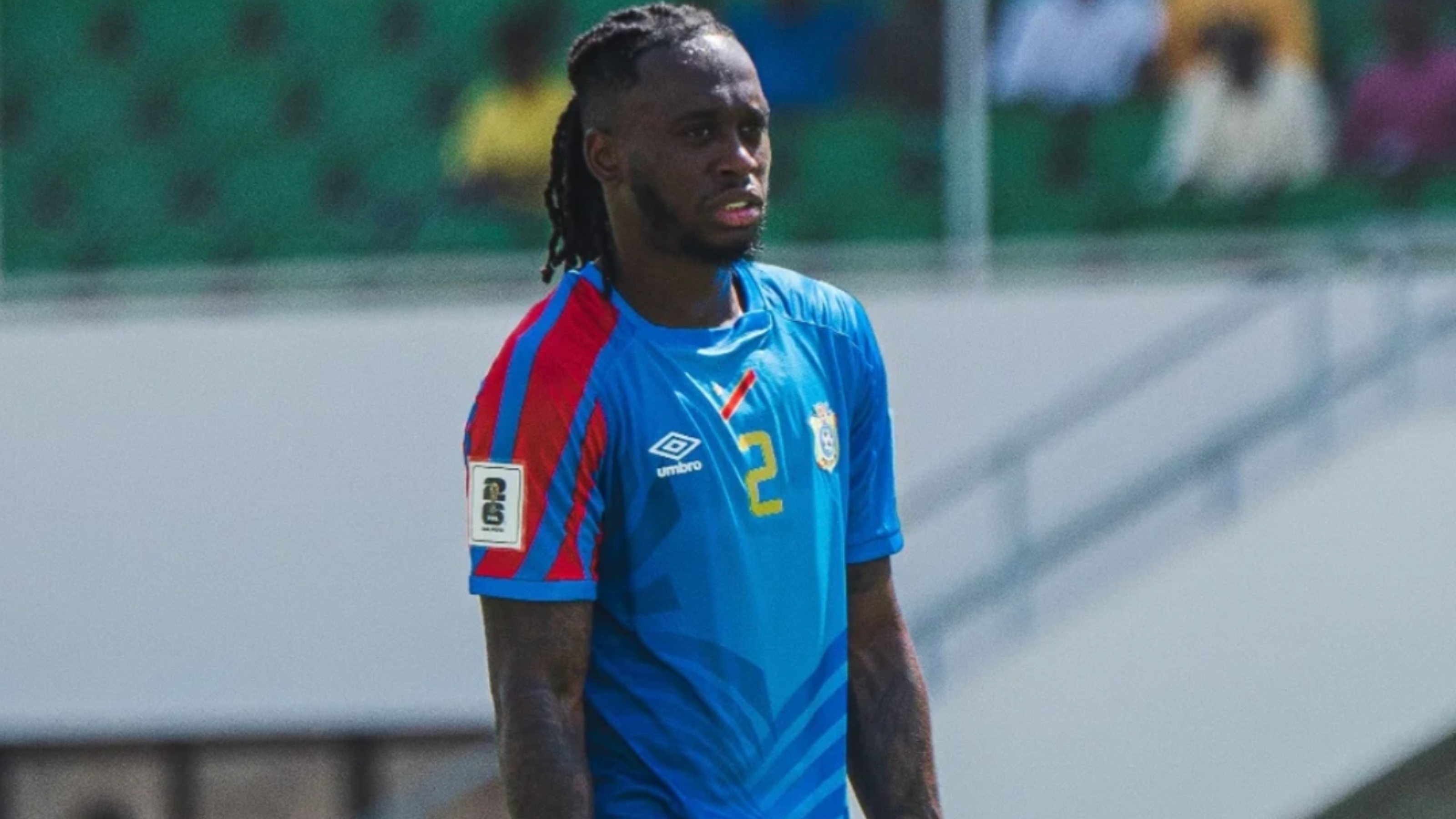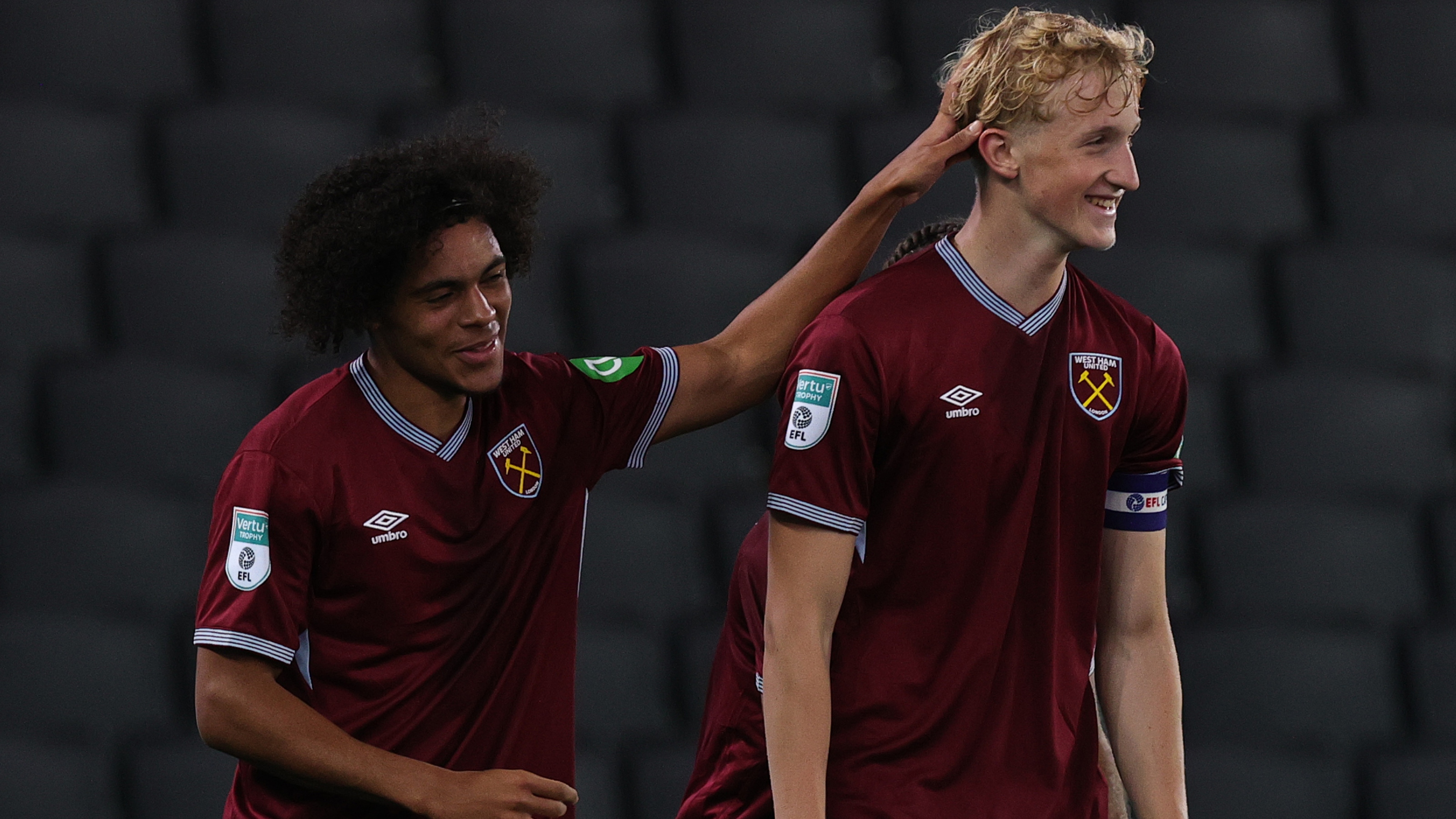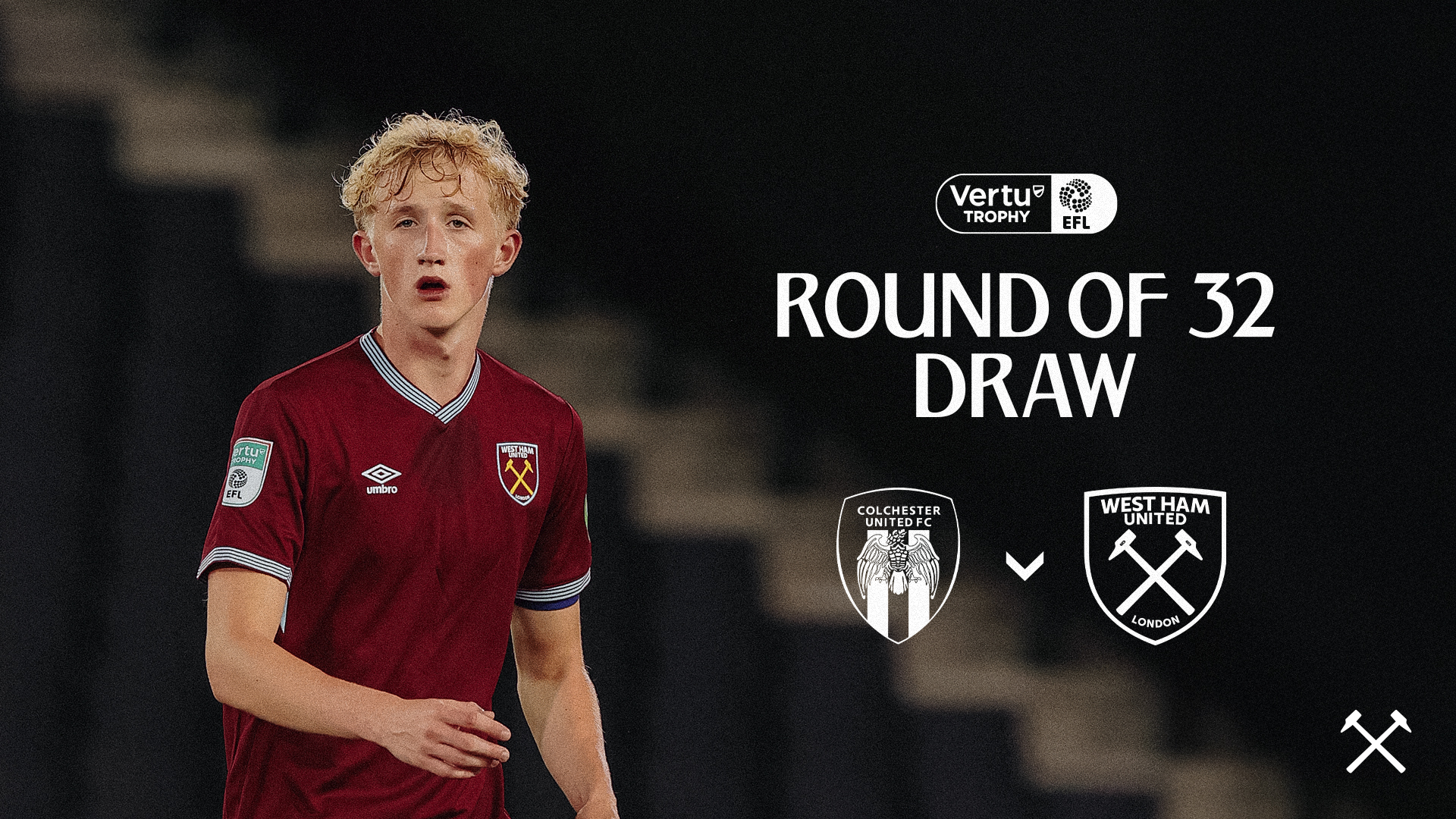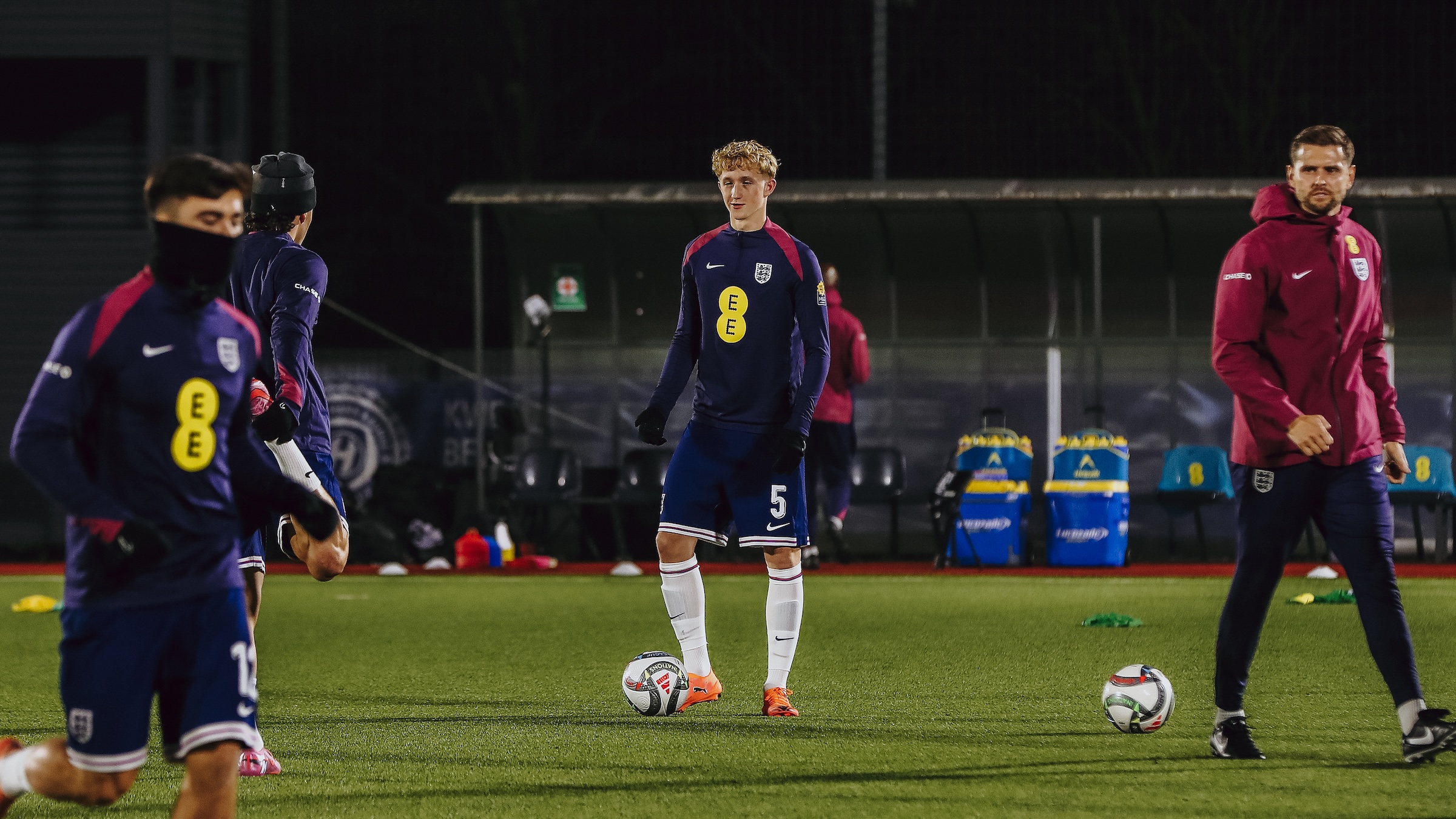Our Academy holds an important place in the development of elite players. Over the years, we’ve seen our own become West Ham legends, lift European trophies and go on to have successful careers. But before all that, they were humble Hammers, making their names at Chadwell Heath and representing their nations at youth level.
In this series, we explore some of the talent our very own West Ham graduates have shared a pitch with on the international stage…
Glen Johnson in 2004 UEFA U21 Euro qualifying action
At West Ham United from the age of nine, Glen Johnson was a regular fixture for England across the youth age groups.
Just two months after his 18th birthday, in October 2002, he was handed his first taste of senior football with a three-month loan at local rivals Millwall in the second tier, ahead of a planned integration into West Ham’s first team for the second half of the 2002/03 campaign.
Johnson returned to the Hammers in December, and by the time he made his Premier League debut, coming on as a substitute in a 4-2 defeat at Charlton Athletic in January 2003, the Club were rooted to the foot of the table.
Having picked up only three wins in their opening 24 matches, things were looking bleak for Glenn Roeder’s side. Johnson then started every game for the Hammers as they lost just three of their next 13 games to take their chances of Premier League survival to the final game of the season.

Level on points with 17th-place Bolton Wanderers but behind on goal difference, the Hammers travelled to face Birmingham City needing a better result than their Lancashire rivals to survive. Despite goals from Les Ferdinand and Paolo Di Canio securing a draw at St Andrew’s, Bolton’s win over Middlesbrough confirmed West Ham’s relegation to the second tier for the first time since 1992. Their final tally of 42 points remains the highest total ever recorded by a relegated Premier League side and they are still cited as one of the most talented teams to suffer the drop.
With UEFA Euro 2004 approaching and West Ham now in the second tier, both Glen Johnson and Club captain Joe Cole departed for Chelsea in search of top-flight football.
Shortly after sealing a £6 million switch to Stamford Bridge in July 2003, Johnson turned out for England U21s - for whom he had debuted while still a Hammer - in a UEFA European U21 Championship qualifier at a sold-out Goodison Park. David Platt’s side would unfortunately lose 2-1 on Merseyside, a result that would ultimately end their qualification hopes.
On that night, Johnson was tasked with containing a Portugal front three who would go on to amass nearly 400 senior caps between them.
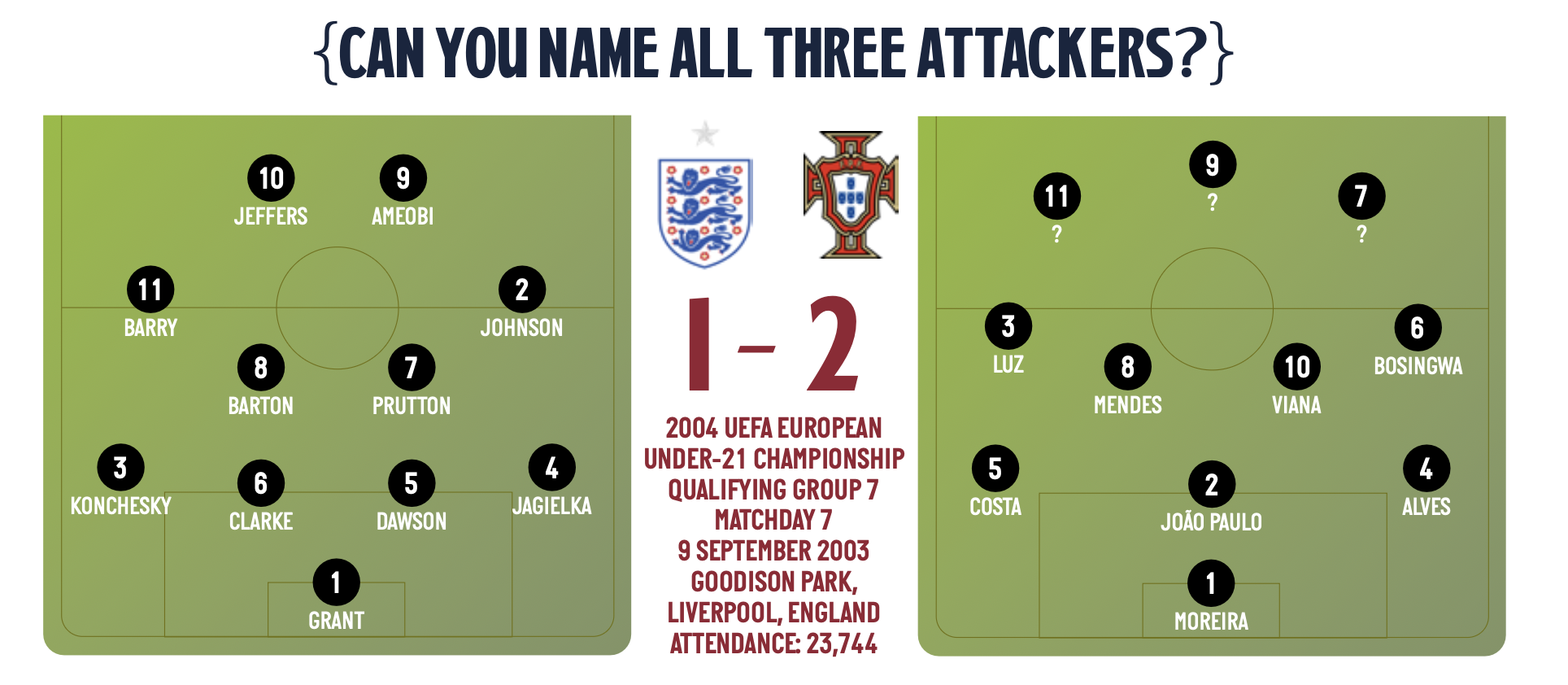
- No11
Unquestionably the most famous of the trio, this player would go on to win five Ballon d’Ors, five UEFA Champions Leagues and one European Championship. That summer, he had signed for Manchester United from Sporting Lisbon and earned his first senior cap. Now Portugal’s record goalscorer and appearance maker, he became the most expensive player in history when he moved to Real Madrid in 2009.

- No7
Ahead of the No11 in the Portuguese pecking order at the time, this player also emerged from Sporting Lisbon’s academy and secured a move that summer to FC Barcelona. After one season in La Liga, he returned home to join UEFA Champions League winners FC Porto, where he won three consecutive domestic titles and was named Portuguese Player of the Year in 2005. A Euro 2016 winner, he is famed for his trademark trivela, an outside-of-the-boot technique that defined many of his most iconic assists and goals, including a stunner against Iran at the 2018 World Cup.

- No9
The match-winner that day against England U21s, after earlier goals from Portugal’s No7 and Joey Barton, this striker joined Tottenham Hotspur from Porto that summer, fresh off a UEFA Cup triumph. His Premier League spell yielded just one goal before a return to Portugal, but he enjoyed far greater success at international level. He featured in five major tournaments for Portugal, scoring 27 goals in 70 caps for the national team, including a goal, an assist and a decisive penalty in the shootout that knocked England out of Euro 2004. He also ended England’s European hopes that night at Goodison Park, scoring the winner in controversial circumstances, using his hand to steer a Hugo Viana free-kick beyond goalkeeper Lee Grant.

Answers
Answers
No11: Cristiano Ronaldo
No7: Ricardo Quaresma
No9: Hélder Postiga
